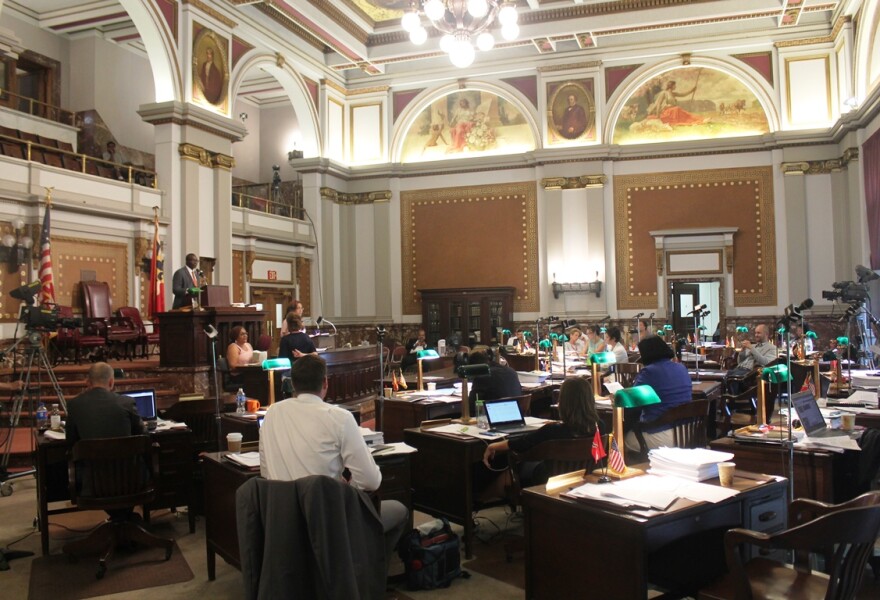When the St. Louis Board of Aldermen returns for its final day of the 2019-20 legislative session on Monday, the meeting will look vastly different.
Aldermen last met on March 13, the same day Mayor Lyda Krewson declared the coronavirus pandemic a public health emergency. Ten days later, she instituted a stay-at-home order that prohibits non-essential activities. To comply with that order, there will be no one in the aldermanic chamber on Monday except for minimal support staff.
The board will instead meet virtually, using the video conferencing tool Zoom. The public will be able to watch the meeting on Zoom, or via livestream on the city’s YouTube channel. People can also dial into the meeting and listen to the live audio on the phone.
“It’s a lot more complex than just doing a video conference,” Board President Lewis Reed said. “We have a lot of compliance issues that we have to work through. We have security issues that we have to work through so that people aren’t photo-bombing and all this other kind of stuff.”
The board and staff have done several practice sessions to make sure the meetings run as smoothly as possible procedurally, Reed said, adding that he thinks the switch to meeting online will change the way the board operates when members are able to return to City Hall.
“I think people will understand more about some of the nuances,” he said. “The board members themselves may be more aware of some of the things that during an average meeting they may not deal with.”
The city charter allows board meetings to be held away from City Hall in case of an emergency. In 2015, the swearing-in ceremony for newly elected aldermen had to be held outdoors because of a bomb scare. And Terry Kennedy, a former longtime alderman who is now the clerk of the board, recalled three times in the 1980s and '90s when aldermen did not meet in the chamber because of construction.
A legal opinion from the city counselor said the pandemic is an emergency, and the proposal to use Zoom appeared to comply with the state’s open meetings law.
On the agenda
The final meeting of the session — or sine die, as it’s known — is almost always a packed day, as aldermen push to get bills across the finish line. This year, however, most major legislation, like financing for a proposed soccer stadium near Union Station, was completed earlier in the session.
There are a few wild cards on Monday’s agenda, including legislation from Alderman John Collins-Muhammad, D-21st Ward, that would drastically restructure the St. Louis police department.
Mayor Lyda Krewson opposes the bill, as well as another piece of legislation from Collins-Muhammad that would ask voters to undo a 2012 referendum reducing the Board of Aldermen from 28 to 14. That means realistically, Collins-Muhammad would have to secure the support of 20 aldermento override a mayoral veto, a threshold he has not been able to reach at past meetings.
Alderwoman Christine Igrassia, D-6th Ward, will wait until next session to work on legislation granting some city workers paid parental leave. Concerns about the impact of the pandemic on the budget, however, may make aldermen wary of introducing new expenses.
And Alderman Joe Roddy, D-17th Ward, said he will not attempt to override Krewson’s veto of legislation confirming that some projects in the city receiving tax incentives are meeting deadlines in the required redevelopment plans. The mayor vetoed the bill on Feb. 7 because Paul McKee’s Northside Regeneration Project was listed as being on schedule, when in fact the development has had significant delays.
On tap to pass Monday are bills setting new energy standards for buildings and allowing individuals who have reserved city park amenities to block people from carrying concealed weapons in the reserved area.
The board will begin the 2020-21 session — again meeting virtually — at 10 a.m. Tuesday.
Follow Rachel on Twitter: @rlippmann
Send questions and comments about this story to feedback@stlpublicradio.org







